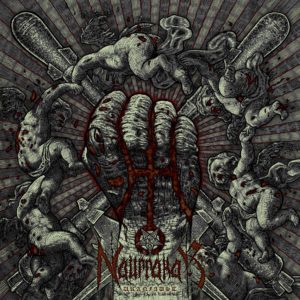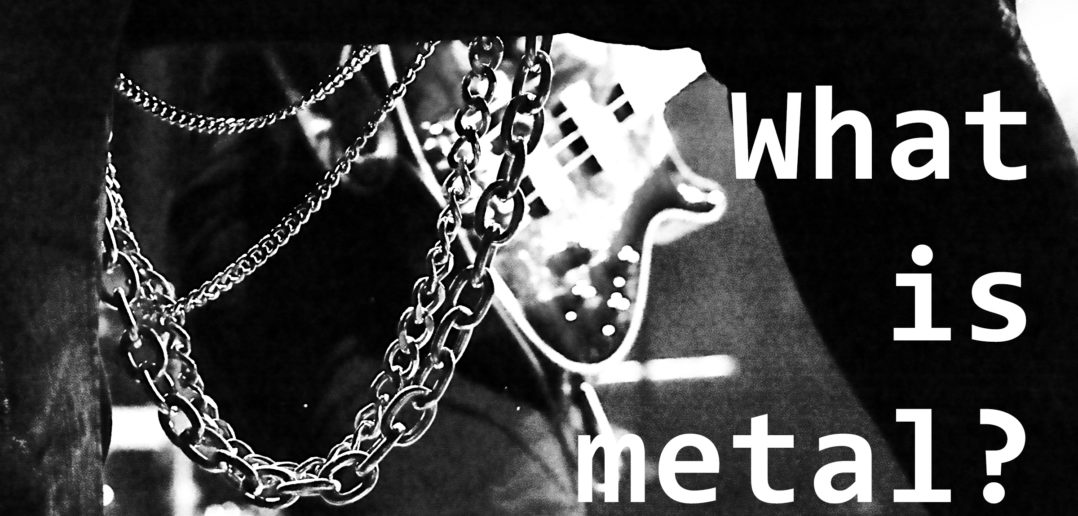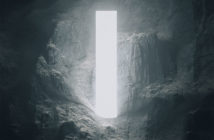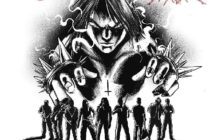“Faster, Harder, Louder Is not also one of the worlds‘ most important heavy metal festivals motto, is also my own“, Catalin Ungureanu from the Romanian female-fronted metal band Scarlet Aura tells me and it is, perhaps, the natural idea of metal: „Music, passion, attitude is all contained in this three connected words. Music is a rollercoaster of emotions and power. It’s all about sharing the feelings and make the audience embrace all of the light, power, freedom you transmit through your music. Faster like how fast minutes pass when on stage and faster rhythm, harder and more profound emotions and harder grooves and always louder euphoric moments, louder music, louder than hell! Live fast, play hard, scream loud!”
My story, a different story, begins on summer night in Helsinki. On stage I see the Amorphis musicians come and go preparing their gig “A night with friends”. One of those friends is Pekko Käppi adding a unique touch with his medieval instrument, the jouhikko, to the anyway proggy sounds of the metal heads. No doubt this night: all musicians on stage play metal and are united in metal. It is roughly one year later when I see Pekko Käppi on stage again. Only minutes earlier we had sat together when he explained the magic and history of his instrument. But now on stage as he plays I wonder: is this metal? We are on a metal festival. So it should be, is my first idea. I watch, listen and feel. I am no musician. And I have no musical education. And my thoughts wander. I feel the passion, sense tension and aggression – essential for metal music – in various forms in Pekko’s performance and music. The wandering thoughts in my mind begin to clear into an image. No matter what the genre might be – which in Pekko’s perspective would most likely be simply music – it is metal that is going on here and now. Metal. But then I ask Eugene Abdukhanov from the Ukrainian band Jinjer to find him disappointed: “Well, metal, to be honest starts losing its sense for me recently. In my teens it was music of protest, rebel and progress. A perfect way out for my inner aggression. But nowadays metal music in general seems to be source of stagnation, conservatism, narrow-mindedness …” The question remains:

What is metal to you?
I asked more musicians. “I would say Metal is freedom”, replies Juho Tuomas, multi-instrumentalist at Shades of Deep Water and Sarajah. But then, “metal is fun”, says Antti Karhu, guitarist and main composer of Post Pulse and former guitarist of The Man Eating Tree. I stopped counting how often a friend told me that people gazed at her in disbelieve when she replied to their question what kind of music she likes most. “Metal. You?” And when recently I saw Satyricon on their tour I missed the typical outfits one would stereotypically expect in the crowd of a traditional Norwegian Black Metal band.
Metal, music as well as the community, is still associated with a neat set of stereotypes: “Many people who don’t get it will call you satanist or whatever”, Seth Corttus, vocalist of Embrace the Darkness from Czech Republic mentions. And Kimmo Hiltunen, bass player of the Finnish band S-Tool says: “I’m from a small village where not that many people listened metal, even lesser played it. And of course, you would get a l o t of shit for digging it. But I guess that was part of the communal aspect of it. More shit we got, more determined we became!” These stereotypes and the hostility from outside don’t match with my experience from being within the metal community and I am happy to learn: “Like scientific studies say metal-listening people tend to be more stable, easy-going and friendly. I totally agree. In a mosh pit there’s more love and human contact and real strong motions around you than any dance floor disco. It is positive aggression you know, to express your thing publicly. Black clothes and vests expresses your tribal ways. A metal head always loves to tell you about some new upcomer band or artist. It’s like taking care of your family”, Antti “Hyrde” Hyyrynen from Stam1na tells me. And yes, many times standing amidst the audience of a show or queuing to gain access to the hall or at the bar for a drink the oh so aggressive metal heads turn out to be patiently waiting their turns or help a stumbling fellow in the mosh pit. Most of those stereotypes metal faces – to me – are no more than memories of the era of destroyed hotel room interior, excessive drug use and scandalous sex stories in tabloids while the subculture of metal has long become part of the mainstream. Well perhaps it is more the other way round and the mainstream has become metal? All the more the question presses: what is metal?
Music? Community? Spirit? Attitude? Eomtion? Life Style?
„It has to be the music”, Jukka Pelkonen, vocalist and lyricist of Omnium Gatherum begins, “because the music is the starting point of it all. Because without the music the other things could not exist.” It seems to be a lot more than the music: “What is metal … attitude, really. I find some rock bands are more metal than some metal bands the music can be complicated, but it doesn’t have to be”, says Jukka Kolehmainen, vocalist of the Finnish Old School Death Metal veterans Abhorrence. And he continues: “So some rock bands just kick ass and don’t overthink, while some metal bands overthink and overdo finesse. Music can be art, but when you start creating art and not metal, I find something lacking.” So it is hard to define, highly individual and apparently metal is not limited to metal (music).
What features might be important? “For me metal is mostly music. The atmosphere that is usually dark and melancholic. Heavy but also light. Metal represents wide scale of music and is difficult to define what is metal and what is not. And actually for me it does not matter if it is metal or not. Music only needs to suit my current mood”, explains Janne Lunnas, guitarist and composer at the Finnish band Alase. I asked Aðalbjörn Tryggvason from Sólstafir. And the question triggers intensive thinking. In a long statement he explains how he came to metal as a teenager, very fond of the guitar solo in Slayer’s ‘Angel of Death’. “I find it really hard to explain what it is. It’s a wide term, I mean. AC/DC is not metal but related to it. And Thin Lizzy – it’s not really metal. But … one aspect of Rock’n’Roll really. And I started this Guns’n’Roses, AC/DC – that’s also Rock’n’Roll. And then came of course Metallica and Slayer and that’s of course, metal bands. But all in all the same feeling to it“, he says.
But then this metal is a way to express your emotions, as Anton Kabanen from Beast in Black explains: “To me, metal is the type of music that gives the most freedom to express one’s feelings and to explore. Reason is simple. Only in this genre you can go from a delicate whisper to a deafening roar.” Having a medium of expression is really important to the musicians but it goes even deeper. “As creator, composer, I see it more therapeutic way to express myself”, Mikko Heikkilä, Kaunis Kuolematon and Throne of Mourn (among others) says. “I’m a very melancholic one with my mind flow, so it’s pretty natural to share thoughts in this kind of a music. After changing most of my works to Finnish, my own language, I really don’t have to push it because it comes out by itself. So that’s been relief to see and realize this is my way to do it. Right words, even with a short but simple, sweet melody you are able to do something huge that you might understand afterwards and that’s the beauty of it. If you are able to share those feelings with someone else, you know you have succeeded and it’s totally rewarding.” It is also a “healthy outlet for aggression. Hmm … in some ways it is a communal thing, you know, but to me it has been more ‘a thing of my own’: first listening to it, then learning to play it and later writing and composing it”, Kimmo Hiltunen explains his view. „I think above music it is of being true to do, what you love to do“, says Þráinn Árni Baldvinsson from Icelandic band Skalmölð. And Seth Corttus supports „when you trust your music you are being yourself.“ “Metal, no way to describe it in a one word. For me it’s more than just a music. That is feeling for both ways; as recipient and creator. As recipient, you are able to have insightful feelings and experiences, to get inspired for emotions you get. It needs just a one riff, whole song or just a one part of it to be reached. And the lyrics could be also in very strong position as well, it depends but still”, illustrates Mikko Heikkilä. I learned myself that authenticity and honesty are essential to metal musicians. “There is no way of faking it!“ Snæbjörn “Bibbi” Ragnarsson from Skalmölð (bass, backing vocals and lyrics) sums it up.
“Metal is my life”
The question deals apparently with a very emotional and very personal matter. The passion for metal, it often starts early and might last forever. “All above was early memories. And course, it was all that my life was about! Metal!!” admits Kimmo Hiltunen speaking of his youth and matching Pasi Koskinen’s point, vocalist of the Finnish Black Metal band Ajattara: “Metal is my life, all I go through, I go through metal; and it’s been since birth. I can’t say it more straight but without bands like Venom, Possessed, Bathory, Morbid Angel – just name a few – my life would be empty. Extreme is the word, and I don’t have to climb mountains or jump of the aeroplane, I do metal till the darkness collects my being.” On the other hand, “I started listening to metal as teenage boy when I first heard a really aggressive and kind of simple song at a friend’s place. It was like switch in my head or an addiction, other genres were completely out of my sight. So we founded our first band and THEN I learned how to play the guitar”, guitarist and main composer Robin Görss from the German band Lone Gunmen, tells me. ”Since that one moment metal is my way to channel emotions and I think every metal head has had a similar moment in his life. I would say metal is more than just a music genre or band shirts, it’s a connection between people that can make complete strangers stand arm in arm in front of a stage.”
In particular, it is the connection between the marginal ones as Aðalbjörn illustrates his experiences: „The way I look at heavy metal genre, the people, the kids it’s more like outcasts. It’s not the guy that fucked the prom queen in an American teenage movie. It’s not the quarter back in American football team. It’s more like the gigi guys that find friends in each other. Or I found. It’s sort of my friends I found that and I still have. Most of my friends I have since I was twelve. They’re like the shy guys that didn’t have a chance of talking to girls. Or didn’t play football. So sort of we group up. And I see it like that, you know, the bigger, the fatter, the more bearded the guy is – the biggest heart ever!“ But those big-hearted guys are often full of darkness – not violence – and here we hit another point.
The Brotherhood in Darkness
I spoke with Anneke van Giersbergen, VUUR (former: The Gathering, The Gentle Storm to name only few) and she mentioned a brotherhood before I asked to tell me what metal is to her. “That’s a question I had never had before. And I wouldn’t know the answer. I do know that metal is for people who embrace in a lot of times – metal has also heavy metal, doom metal, and all that is in between, so many subgenres – but in general people who listen to metal embrace darkness in their lives. So as for instance in Holland very much darkness is a taboo – so we can’t speak about illness, we can’t speak about politics, we can’t speak about politics, we can’t speak money, we can’t speak sex, we can’t speak the fear of dying, death, we do not speak about death, in general, however, if we do we can grow in life. The depth in life is about these things. Metal is in a lot of ways: we can go there to find depth in our lives. Of course, it’s happy, you know stuff in metal. But it always deals with love, poetry but death and all of the times, politics. We can talk about anything in metal. And we talked about the brotherhood. Metal is more of a brotherhood than anything else.” It is, I think, and Seth Corttus puts it like this: “And afterwards you come to a gig or festival, you know you are with your people, family or whatever else. Metalists are very nice and kind people and even they don’t know you they will help you in any time.” We all know, naturally, that darkness is a part of any personality so that no group comes without people being not half as pleasant as those described here. Then again the aggressive music seems to vent aggression efficiently. And Hyrde even spoke of the love in the mosh pit. Jukka Pelkonen adds to this: “But in metal genre for my opinion it is really intense when it comes to the attitude and stuff like that. All the bands and the people who come and see the bands live. So I would say it is the combination.“ So metal is about the people who listen to it and their connection with each other.
In my own words
Metal is music – no doubt about that. From a whisper to a roar, loud or sensitive, distorted, harsh or clean, always, however, bearing at least a trace of aggression. This music is a valuable companion – for a life time. And even those who are disappointed or have face life to happen are still musicians coming up with and playing metal music.
Metal is a community – surprisingly poor of aggression, welcoming, open-minded and colourful atl least on the second sight and despite the dominating colour black.
Metal is an emotion that connects the individuals of the community, includes marginals and outcasts. As the cristallisation point is the music, superficial attributes, looks, origin or degrees in education, payroll grades or social status beyond the community do not make a point here. But then
metal can be a life style. A simple black t-shirt with a logo can be a statement. A small, fading patch on an old jeans vest can be a status symbol and a spidery signature on a vinyl cover might mean the world. And in the end
metal is attitude expressed in the music, the way of dressing, a connective emotion or none of this perceivable from the outside perspective as it derives from within and has infiltrated the mainstream for long. There an unmeasured yet surely immense share of ‚metal heads‘ seeing no need to show their attitude outside the community.
Besides for the music I love metal for people, for the fact to always have a topic for a meaningful conversation, for the opportunities to forget the world or to witness sensitive, often even introvert musicians expressing their deepest insides.
So metal is a lot more than music. Metal is not perfect, neither its community. But such is life, isn’t it? Metal is attitude, community, a friend and emotions of any kind – or as Juha Beck, drummer of Evil Drive and Suuri Tuntematon, says it – short and simple: “It’s all of those.”
Thanks to all mentioned here for the inspiring and often very private statements on what is metal to you. Some statements I took from interivews I did and launched earlier already (Sòlstafir, Omnium Gatherum, Stam1na, Skalmölð).







[…] community does speak of it so that it adds depths to the life (read her full reply and check out “What is metal?”) I have experienced that, the open arms from all sides … And she continues: “But people like in […]